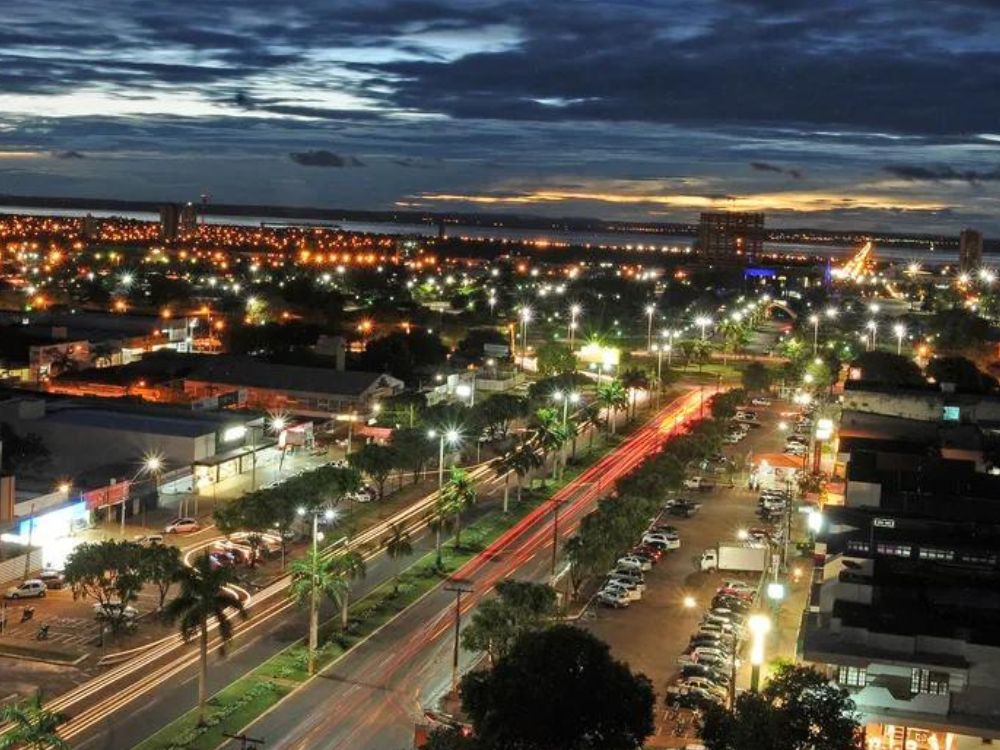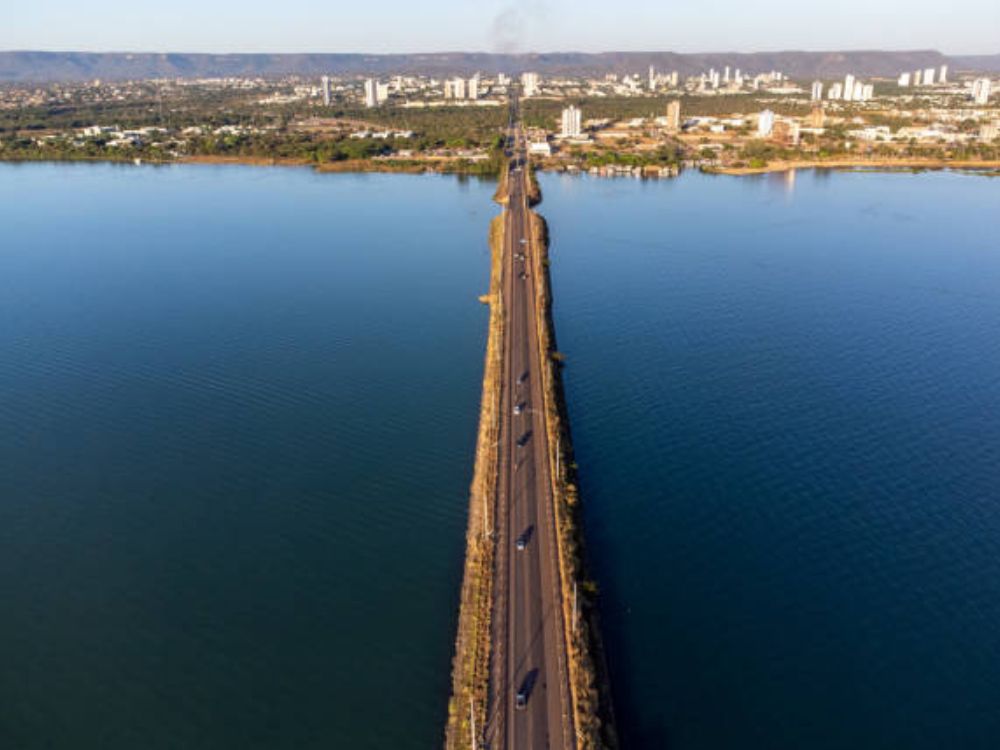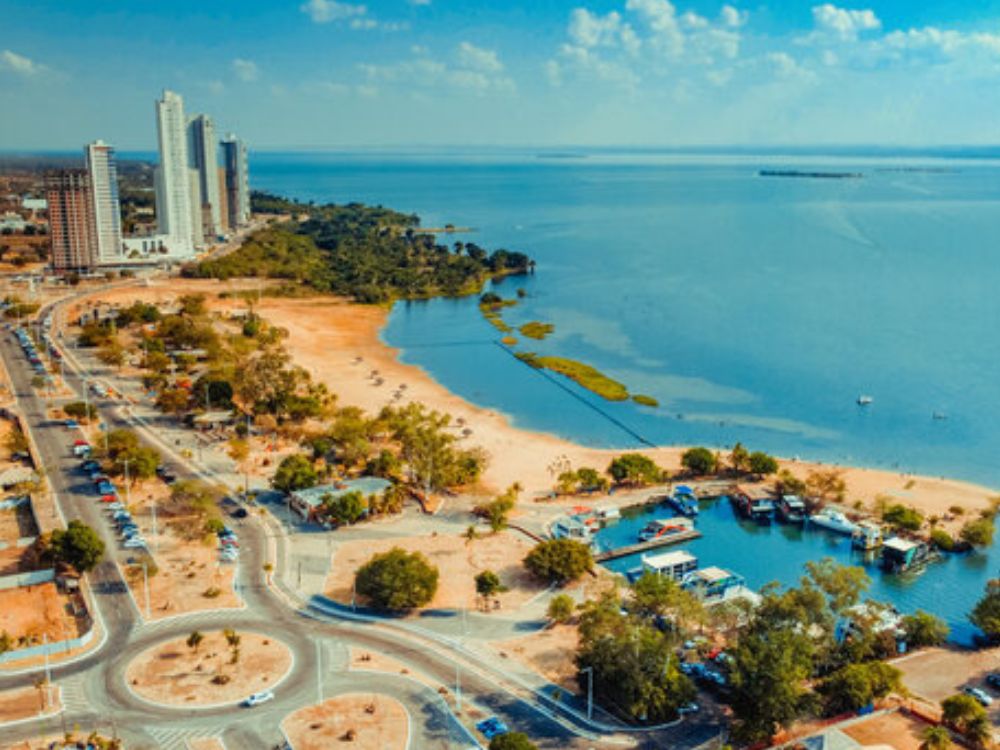
Situated in the heart of Brazil, the state of Tocantins enchants with its natural and cultural diversity. With an average temperature ranging from 24°C to 28°C throughout the year, the predominantly tropical climate is perfect for exploring its vast areas of forest and crystal-clear rivers.
This mild and inviting climate allows visitors to fully enjoy outdoor activities, from hiking in national parks to boating on serene rivers. Tocantins is a relatively young state, created in 1988, but it has quickly become renowned for its natural beauty and rich cultural offerings.
With a population of approximately 1.6 million inhabitants, Tocantins boasts impressive proportions, occupying an extensive geographical area filled with stunning landscapes.
The vast territory offers a great diversity of ecosystems, from the Cerrado to areas of the Amazon rainforest, each with its own unique flora and fauna. The biodiversity is one of Tocantins’ great treasures, attracting ecotourists and researchers from around the world.
The Jalapão State Park is one of the prime examples of this natural wealth, with its dunes, waterfalls, and plateaus creating a breathtaking setting.
Colonized primarily by the Portuguese, the state also has indigenous and African influences, reflected in its local customs and traditions.
Indigenous communities, such as the Karajá and the Xerente, still maintain their traditions, and it is possible to visit these communities to learn more about their cultures and ways of life. Indigenous dances, music, and crafts are an essential part of Tocantins’ cultural identity, offering a rich tapestry of cultural experiences.
Besides the indigenous influences, African traditions are also strong, manifesting in religious festivals, cuisine, and music.

Tocantins’ cuisine is a fusion of regional flavors, featuring dishes such as rice with pequi, pamonha, and the traditional sun-dried meat barbecue. Pequi, a typical fruit of the Cerrado, is a central ingredient in local cuisine, known for its peculiar taste and strong aroma.
Pamonha, made from fresh corn, is a delicacy that can be sweet or savory, depending on the recipe, and is often consumed during June festivals. The sun-dried meat barbecue, prepared with dried beef and local spices, is a dish that celebrates the simplicity and richness of regional ingredients.
Additionally, polvilho biscuits and chambari, a kind of meat stew with vegetables, are highly appreciated by locals and tourists alike.
Among the traditional festivals and events, São João is a standout celebration, featuring typical dances, live music, and culinary delights. During São João, cities are filled with color and joy, with festivities that include quadrilhas (folk dances), bonfires, and forró music shows.
This event is an excellent opportunity for visitors to immerse themselves in local culture and experience Tocantins’ hospitality. Another significant event is the Festa do Divino, which blends religious and festive elements, with processions, singing, and communal meals, reflecting the faith and solidarity of the local population.
Despite not having a coastline, Tocantins is rich in water resources, with beautiful river beaches along its rivers and lakes. The beaches of the Araguaia River, for example, are famous for their crystal-clear waters and white sands, offering a perfect retreat for those seeking relaxation and contact with nature.
The beach season, which occurs during the dry season, is one of the liveliest times of the year, with activities such as water sports, fishing, and picnics. Besides the Araguaia River, the Tocantins River and the Lajeado Hydroelectric Plant lake are other important spots for leisure and water tourism.
Key cities include Palmas, the capital, known for its modernity and urban planning, and Araguaína, an important economic and cultural center of the state.
Palmas, the last planned capital of Brazil, is a modern city with wide avenues and well-developed infrastructure. The city offers a high quality of life, with many parks, leisure areas, and cultural events. The Praça dos Girassóis, one of the largest public squares in the world, is a city landmark, housing historical monuments, museums, and spaces for outdoor activities.
Araguaína, on the other hand, is an economic hub, with a strong presence in agriculture and livestock, and is also a center for commerce and services. The city is also known for its traditional festivals and religious fervor, with various celebrations throughout the year.
The appearance of Tocantins’ cities varies between modern urban areas and tranquil villages, all surrounded by the region’s lush nature. Small towns and villages preserve a slower pace of life, where it is possible to enjoy the simplicity of everyday life and proximity to nature.
These places offer an authentic and welcoming experience, far from the hustle and bustle of big cities. The city of Natividade, for example, is one of the oldest municipalities in the state, with a rich historical and architectural heritage dating back to the 18th century, offering a journey back in time for visitors.
With its stunning landscapes, diverse culture, and warm hospitality, Tocantins offers a unique experience for visitors looking to explore Brazil beyond the traditional destinations.
Every corner of the state reveals a new discovery, whether on the trails of national parks, along the riverbanks, or during cultural celebrations. Tocantins is an open invitation to adventure and immersion in the rich cultural and natural tapestry of Brazil.

For nature lovers, the Jalapão State Park is an unmissable destination. Known as the “desert of waters,” Jalapão offers a unique contrast between its golden dunes and the crystal-clear waters of its waterfalls and springs.
The Cachoeira da Velha, the largest waterfall in the region, is a spectacle of power and beauty, while the bubbling springs provide a unique floating experience. Jalapão is also an excellent destination for ecotourism and adventure sports, such as rafting, canoeing, and trekking.
Another natural highlight of Tocantins is the Cantão State Park, a biodiversity sanctuary located at the confluence of the Araguaia and Javaés rivers. The park is a mosaic of ecosystems, including flooded forests, Cerrado, and floodplain fields, and is home to an impressive variety of animal and plant species.
Cantão is a popular destination for bird watching, sport fishing, and boat trips, offering a complete immersion in the region’s untouched nature.
For those seeking a deep cultural experience, the town of Taquaruçu, located a few kilometers from Palmas, is a charming destination. Known for its waterfalls and ecological trails, Taquaruçu also hosts the Taquaruçu Gastronomic Festival, an annual event that celebrates regional cuisine with creative and delicious dishes prepared by local chefs.
The festival is an excellent opportunity to sample Tocantins’ culinary diversity and experience the hospitality of the residents.
Besides its natural beauty and rich culture, Tocantins also has significant economic potential. Agriculture and livestock are important sectors, with highlights in the production of soybeans, corn, rice, and cattle.
Fish farming, especially the cultivation of tambaqui and pirarucu, is also gaining importance, contributing to the diversification of the local economy. Mining, with the extraction of nickel, limestone, and sand, is another relevant sector, though a careful balance is needed to ensure environmental sustainability.
Tocantins’ infrastructure is constantly developing, with investments in highways, railways, and airports to improve the state’s connectivity. Palmas Airport is an important regional hub, facilitating access for tourists and businesspeople.
The BR-153 highway, known as the Belém-Brasília Highway, is one of the main roads crossing the state, connecting Tocantins to other regions of Brazil. These investments are essential for economic growth and improving the quality of life for local residents.
Tocantins is also committed to sustainability and environmental preservation. Conservation and sustainable management projects are underway to protect the state’s biodiversity and natural resources.
Environmental education is a priority, with initiatives involving local communities in protecting the environment and promoting sustainable practices.
In summary, Tocantins is a state of contrasts and diversities, where the modernity of cities harmoniously blends with the natural and cultural richness of rural areas. Each visit to Tocantins is an opportunity to discover something new and inspiring, whether a stunning landscape, an unforgettable flavor, or a vibrant cultural tradition.
For visitors looking to explore Brazil in an authentic and profound way, Tocantins is a destination that offers unforgettable adventures and a complete immersion in the country’s soul.
